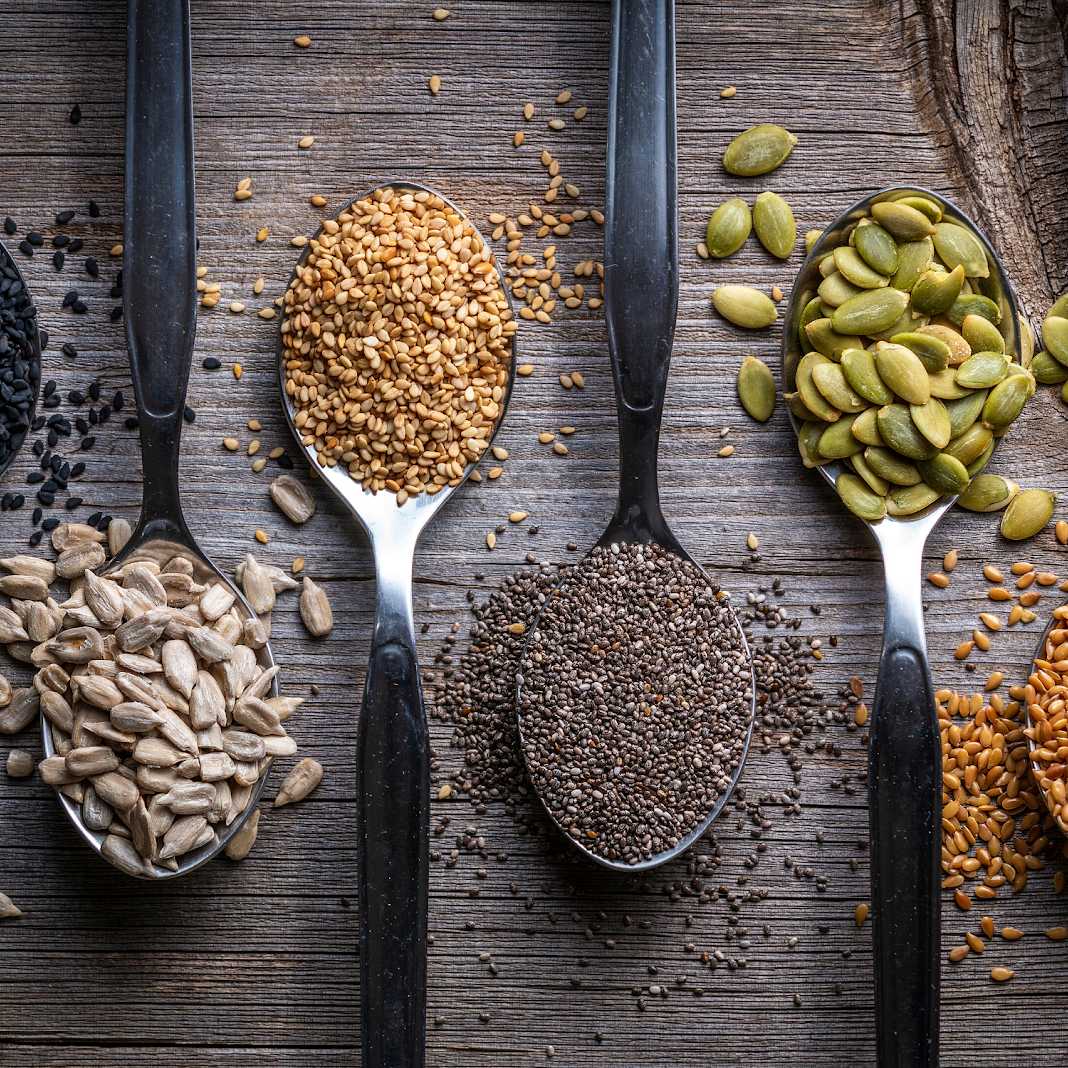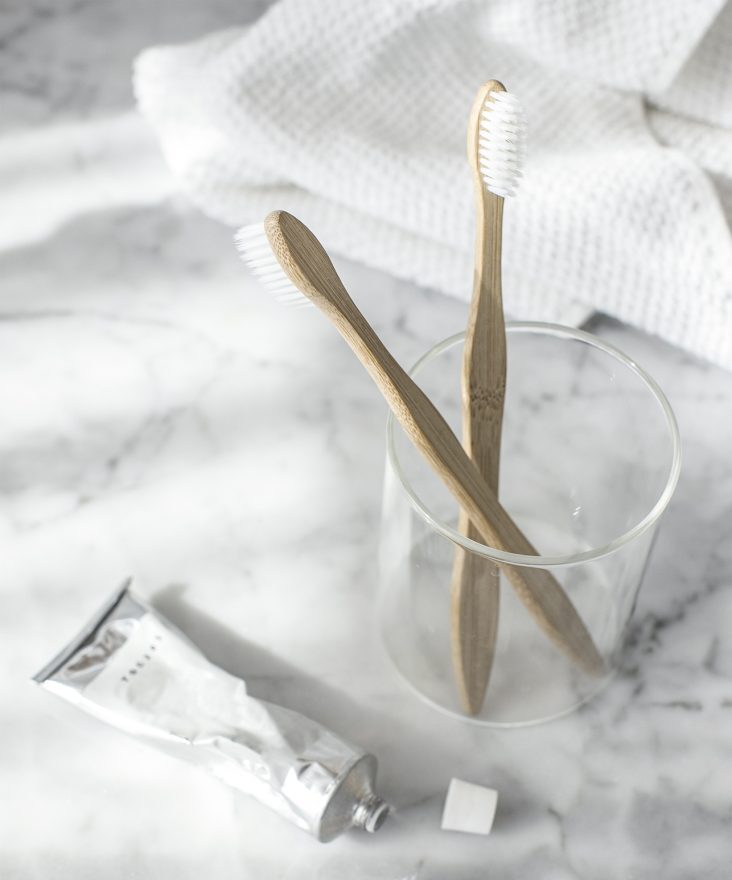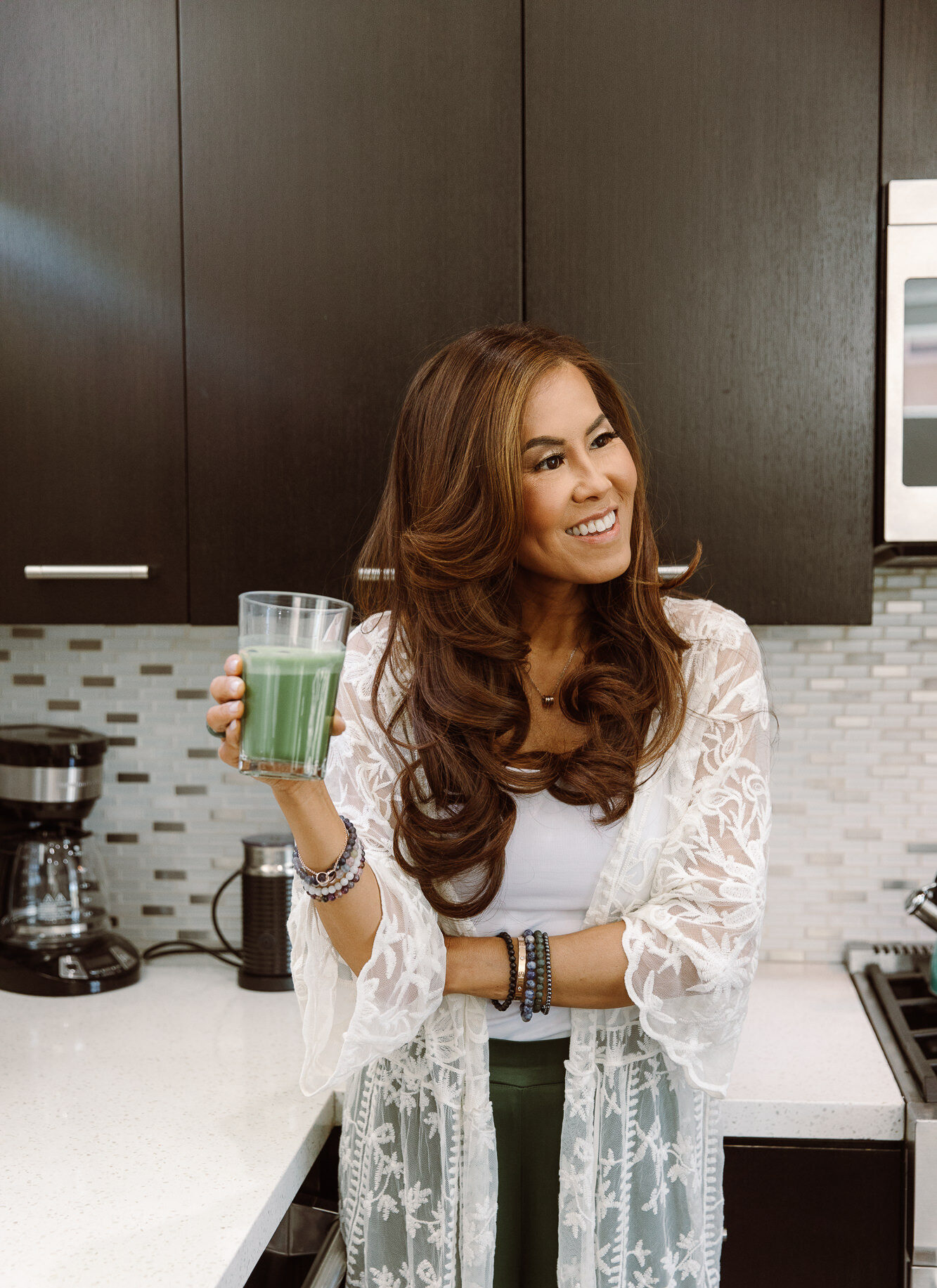Seeds may be small but they are powerhouses filled with nutrients. They are, after all, the beginning of plant life. Seeds have a wealth of health benefits. They’re a great part of a plant-based diet and a great source of protein. Seeds also contain healthy monounsaturated fats, polyunsaturated fats, and many important vitamins, minerals, and antioxidants.
When part of a healthy diet they can help reduce blood sugar, cholesterol, and blood pressure. I’m a huge fan of seeds because they have a small environmental impact. People have been eating seeds for hundreds of years.
I’ll walk you through the nutritional benefits of some of the healthiest seeds including a couple you may not have known were edible. I’ll also share how they can easily be incorporated into your diet as snacks and the secret ingredient to delicious meals. After reading this, you will see why seeds deserve a place in everyone’s pantry.
Chia
Chia seeds have been consumed for thousands of years. Recently, they have garnered a reputation as a “superfood.” Chia seeds are known for being fat-busters. According to a 2017 study, the fiber in chia seeds causes early satiety – that feeling of fullness after eating. This is more than the same caloric intake of fibrous foods.
There is one caveat. The chia must be ground to reap the weight-loss benefits. In a large randomized control trial, those who ate ground chia seeds lost more weight, lowered their waist circumference, and had lower levels of inflammation (measured by a test called C-reactive protein) than the control group.
In cooking, chia seeds soaked in water for half an hour form a gel that is a great egg or oil substitute in cooking. Chia seeds are great for vegan and other plant-based diets. The health benefits of chia seeds are they boost levels of omega-3 fatty acids which are vital for brain function.
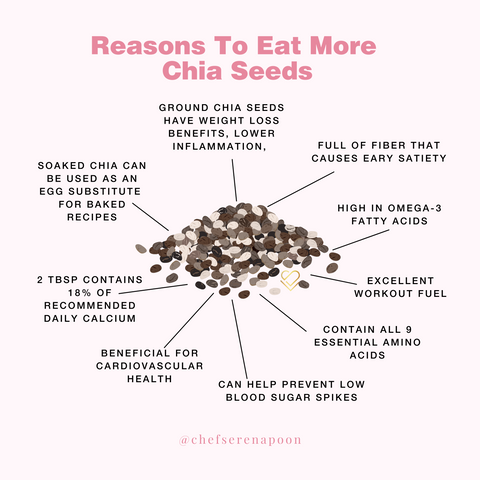
Flax
You might be familiar with flaxseed oil but the seeds are a great addition to your diet. The health benefits of flax seeds include gut-strengthening fiber and a heart-healthy blend of fats. Flax seeds are one of the best sources of plant-based omega-3 fatty acids. The fiber in flax contains a unique type of plant chemical called lignans.
Lignans are molecules found in plant-based whole foods that have profound effects on hormone-mediated cancers such as breast and prostate cancer. A teaspoon of flax per day has been found to reduce the risk of breast cancer by up to 30%. Flax seeds also prevent the spread of diseases throughout the body.
As if that’s not enough reason to consume these tiny seeds, flaxseed is a potent anti-hypertensive. Hypertension or high blood pressure has been linked to many different health issues. Flax seeds are better than any pharmaceutical intervention and were able to lower the blood pressures of people with chronic hypertension. This reduced the risk of strokes and heart attacks by up to 50%.
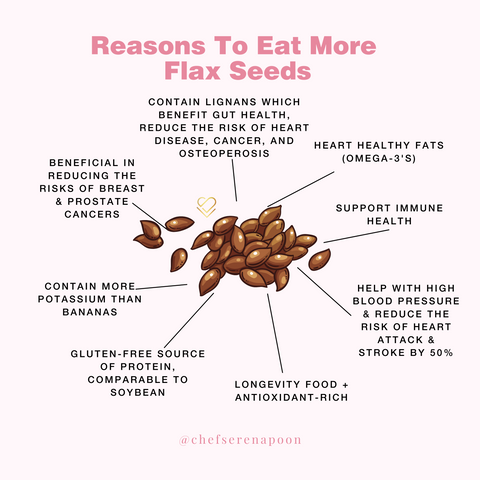
Hemp
Though technically hemp seeds are nuts, I’m including them because they are one of the healthiest seeds and nuts. Hemp seeds are high in both protein and fatty acids, providing omega-3 and omega-6 in good amounts. Fatty acids are necessary for joint and brain health.
The health benefits of hemp seeds also include vitamin E, which is often used to quell dry and itchy skin conditions. Hemp seed oil has been used topically in China for over 3,000 years. Another great reason to increase your hemp seed intake is that one of its amino acids, arginine, is converted in the body to nitric oxide, which causes blood vessels to relax and can reduce blood pressure. Decreased blood pressure lowers your risk of heart disease.
The protein level in hemp seeds rivals that of beef and lamb. If you’re looking for a plant-based source of protein, look no further. Hemp seeds are versatile in cooking. They can be consumed raw or roasted. They have a lovely nutty flavor which can enhance leafy salads or temper down sweet smoothies.
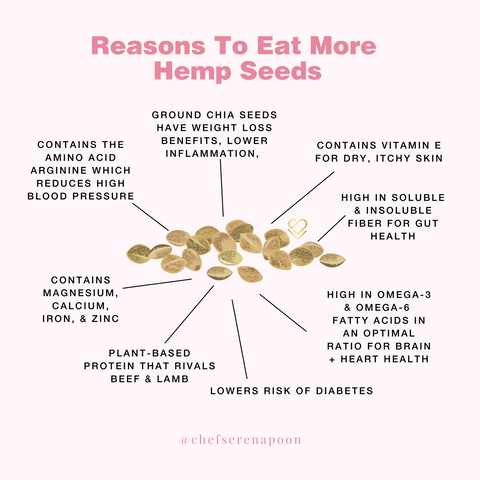
Pumpkin
Pumpkin seeds are also known as pepitas. That’s Spanish for “little squash seeds.” The health benefits of pepitas are the plant sterols, tocopherols, and magnesium that are rich in these seeds. Magnesium is key in the prevention of type 2 diabetes. You might know that diabetes is an independent risk factor for heart disease and strokes, so pumpkin seeds just might be a big deal for your cardiovascular health.
Like other seeds, pumpkin seeds have high levels of omega-3 and omega-6 fatty acids, which contribute to heart and brain health, whilst also lowering levels of “bad” cholesterol and improving blood flow. Pumpkin seeds are my go-to snack when I’m out and about, as they are so readily available. They help me quickly get on top of those food cravings. Fun fact: they are known to be high in tryptophan, which our bodies convert to serotonin and melatonin, helping us to feel happier and relaxed. As a bonus, you can blend them with pumpkin spice for a great fall treat.
Sesame
Sesame oil has been used as a conduit in joint injections for over a century. It’s used to target osteoarthritis as part of gold-based therapy. However, you don’t need to be injecting sesame seeds to get the benefits.
Sesame seeds have potent anti-inflammatory properties. Just a quarter of a cup of sesame seeds per day over a couple of months has been seen to reduce verbal pain scores in arthritis patients suffering daily joint pain by as much as 60%. Additionally, a spoonful of sesame seeds a day can have health benefits to cholesterol levels as well as blood pressure. It’s thought to be due to the chemical sesamin. I like to sprinkle sesame seeds on healthy rice and quinoa dishes, but you can always sneak them into smoothies if you prefer.
Sunflower
Sunflower seeds are seasonal superheroes. The health benefits of sunflower seeds are they are high in vitamin E. This is great for dry skin conditions. Sunflower seeds have 109 mg of calcium per cup. This is good for promoting bone health.
Sunflower seeds are made up of about 20% protein, so they are also great for those looking to boost their protein intake from plant-based whole foods. They are a great crunchy addition to a salad, mixed in granola to increase the protein, or in sunflower butter. A word of caution: processed seeds commonly have added salt and are cooked in canola oil, which can increase inflammation in the body, raise blood pressure, and also leach calcium from bones. Always choose raw, unsalted seeds to ensure you get the most medical benefits.
Fennel
If you’re a licorice fan, consider adding fennel seeds to your diet. Most common for flavoring sausage, these delicious seeds are full of health benefits. While the entire fennel bulb is edible, the seeds are easily added as a spice or condiment to flavor dishes. High in selenium, fennel seeds can help with the production of particular immune cells that fight infection. There is not a single body system that doesn’t benefit from fennel seeds.
Fennel seeds help cardiovascular health due to their potassium. They help metabolic support from vitamin B6, and have anti-cancer properties. There are not much fennel seeds can’t do. Women (and some men!) will be pleased to hear fennel can help to reduce the symptoms of premenstrual syndrome. That means less bloating, fewer mood swings, and less painful cramps. TIP: Try a fennel tea to help wind down at the end of a long day!
Caraway
Caraway seeds, or Persian cumin, are an aromatic cousin of fennel. These seeds inch ahead in terms of protein content and fiber. Caraway seeds are a veritable storehouse of minerals and vitamins. They are also high in phytonutrients which are responsible for lowering cholesterol levels and acting as antioxidants.
Caraway seeds soaked in water have been used as a treatment for flatulence and indigestion. They can also be used in dental care to flavor mouthwashes or pastes due to the sweet peppery taste as an alternative to mint. Caraway seeds have even been shown to reduce muscle soreness after exercise! Cabbage soups and leafy green salads are always improved by caraway.
Pomegranate
Dried or fresh, pomegranate seeds have overtaken goji berries in the health food space. Pomegranate seeds are used to help beat cancer cells in men with prostate cancer. High in vitamin C as well as fiber. This low-calorie snack is considered a “superfood,” because of the many health benefits of pomegranate seeds.
They contain a high number of antioxidants, referred to as polyphenols, including tannies, flavonoids, and anthocyanin. These antioxidants help protect the body against inflammation and free radical damage. You can eat pomegranate seeds by themselves. sprinkle them onto desserts, mix in yogurt or oatmeal, or really sweeten a salad!
Avocado
You might not think an avocado pit would fit under the category of seeds when you’re in the supermarket. However, avocado pits are technically seeds. They may seem more stone than seed but are superfoods in their own right. They can be put to much better use than being thrown in the trash.
Once you’ve scooped out the delicious avocado flesh to bask in the benefits of eating avocado (for health AND beauty!), there is more left to be enjoyed. Alongside all the fiber and healthy fats, the seeds have been shown to have antibacterial and antifungal properties. Avocado seeds have often been used in traditional medicine to prevent and treat infections. They have been shown to stop the growth of Candida (yeast) infections, and work to prevent the spread of Clostridium bacteria.
On top of the antibacterial benefits, avocado seeds are purported to have anti-hypertensive properties. They relax blood vessels and protect the cardiovascular system against heart disease. Avocado seeds can be dehydrated in the oven at 250°F for two hours, and then milled in a food processor until a fine powder forms. This can be sprinkled into sauces, blended into juices, or even steeped in hot water with loose leaf teas for the ultimate antioxidant hit.
I hope this blog gives you some insight into the wide range of medical benefits these seeds can have on our health. While many have high-fat content that may scare people away, remember it is the good type of fat that our body needs. It’s also the kind of fat that helps lower “bad” cholesterol. Our brain is made up of over 60% fat so we need fat for brain health, absorbing nutrients, energy, cell growth, and so on. Versatile and flavorsome, seeds can be consumed all by themselves or they can add a new dimension to your favorite dish or drink.
XO – Serena
by
